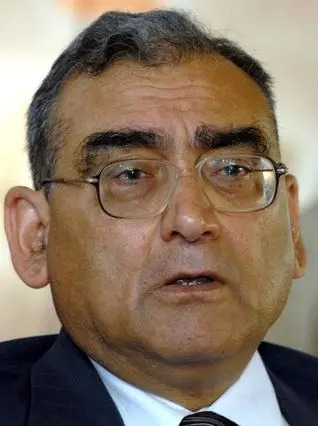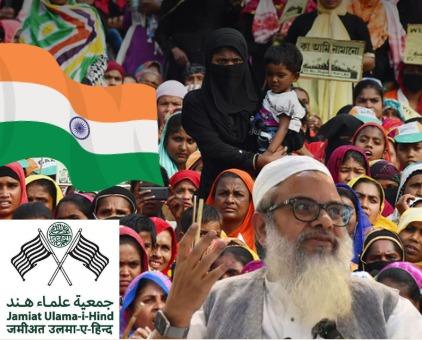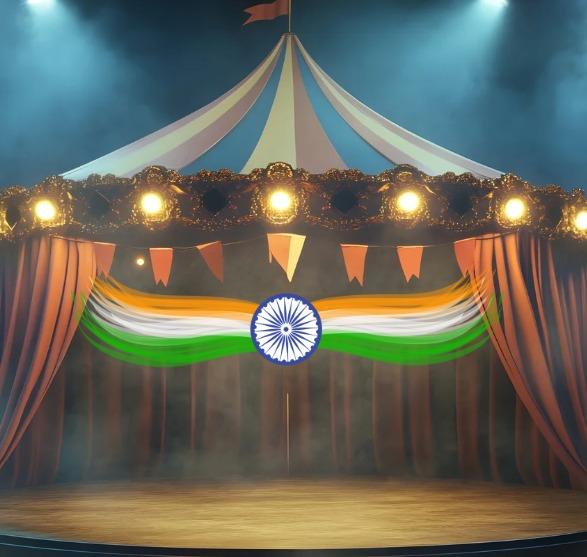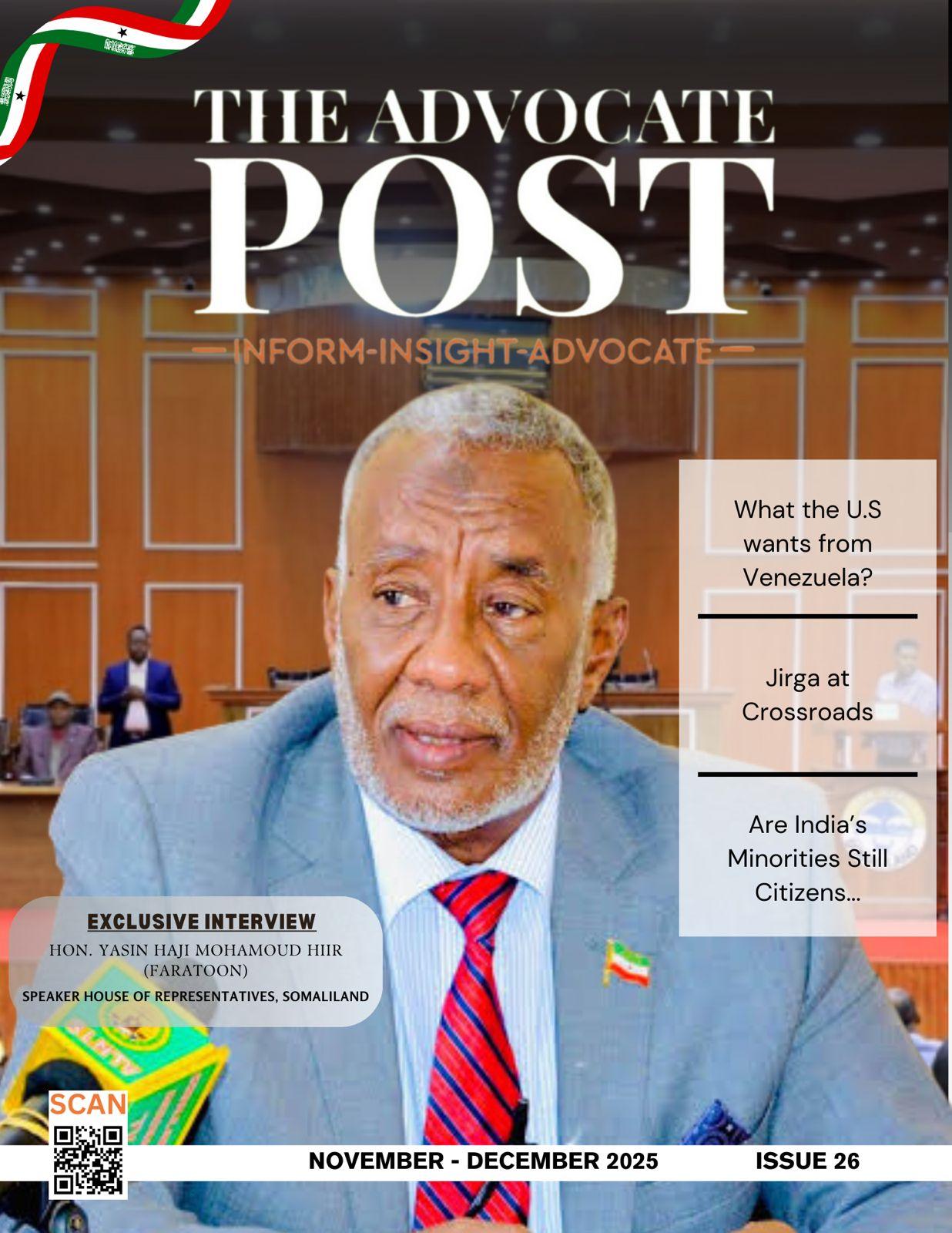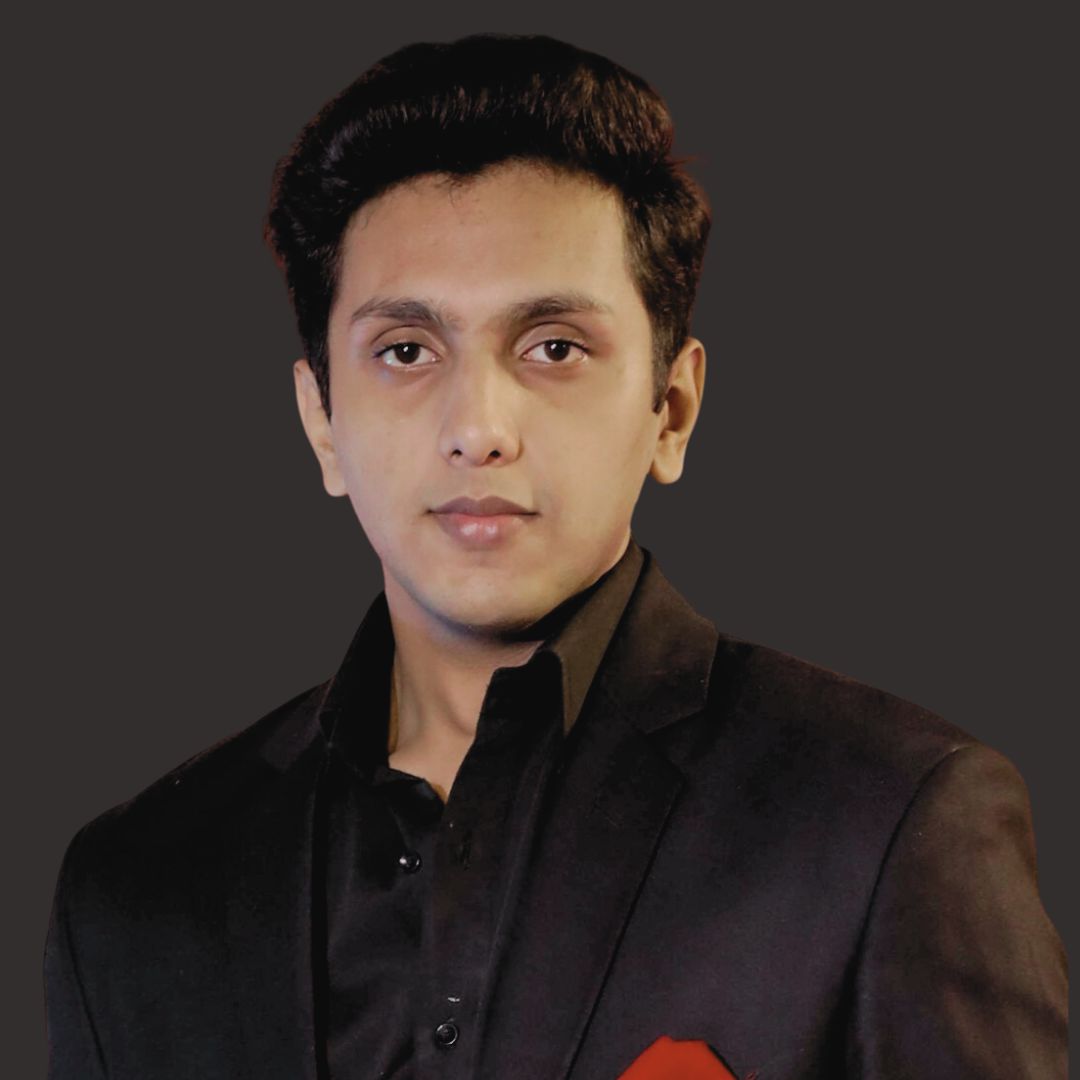By Abdul Rafay Afzal (Editor in Chief – The Advocate Post)
In an exclusive Interview with THE ADVOCATE POST by Abdul Rafay Afzal (Editor in Chief) with Justice Markandey Katju (Former Justice Supreme Court of India), in which he explained the different aspects of Indian culture, politics, changing dynamics from Emperor Akbar to Secular India to a Pro Hindu Indian State under BJP, from media to politics, minorities to literature and culture.
Q1: You’ve called India’s current leadership “communal” and “anti-constitutional.” Do you believe India today is still a secular democracy—or has it crossed over into majoritarianism?
For decades, India projected itself as a secular democracy, a stark contrast to neighboring Pakistan, which had declared itself an Islamic republic. Enshrined in the Indian Constitution was the promise of equality for all religious communities. However, this self-image has increasingly come under scrutiny, with many arguing that Indian secularism was always more symbolic than substantive.
Even before the rise of the right-wing Hindu nationalist BJP in 2014, secularism in India had been compromised. Successive governments, including the Congress, engaged in tokenism—using Muslims largely as a vote bank without addressing their socio-economic marginalization. The 2006 Sachar Committee Report, commissioned by the Congress-led government itself, laid bare the systemic disadvantages faced by Muslims in India—decades before the BJP came to power.
The difference post-2014 is not in intent but in execution. What was once covert and sporadic discrimination has become overt, institutionalized, and aggressive. Under the BJP, there has been a marked rise in religious polarization. Incidents of mob lynching over alleged beef consumption, forced religious slogans, bulldozing of homes, and prolonged detentions on dubious charges have become disturbingly frequent. These actions are not fringe—they are reflective of a broader ideological project aimed at transforming India into a de facto Hindu state.
This trajectory threatens the very fabric of India’s unity. As a country with immense diversity—religious, linguistic, and ethnic—India’s strength has always lain in its pluralism. Regions such as Kashmir, Nagaland, and Mizoram, with strong religious and cultural identities, may not passively accept second-class citizenship. Separatist sentiments in these areas are already simmering as well by Sikhs by their demand of Khalistan. Continued alienation may deepen fissures, potentially leading to fragmentation.
India’s survival as a unified, progressive nation depends on a return to true secularism. The policy of sulah-e-kul (universal tolerance), championed by Emperor Akbar, offers a model—respect and equality for all communities, not just in word, but in practice.
Without this, the cost will not just be India’s secular identity, but its very unity.
Q2: Has the Indian media’s quick blame on Pakistan for the Pahalgam attack exposed it as a mouthpiece for state propaganda, and how does this affect public opinion and regional stability?
Yes, unfortunately, much of the Indian media has abandoned its traditional role as the Fourth Estate and has effectively become an extension of the state. Rather than serving the public interest, it now largely serves the interests of those in power—making it, in effect, anti-people.
The media’s hasty, baseless blame of Pakistan for the April 2025 Pahalgam attack, in which 26 Hindu tourists were killed, is a stark example. Within an hour of the incident—before any investigation, arrests, or evidence—most Indian television channels rushed to implicate Pakistan. The real perpetrators, who escaped into nearby jungles, remain unidentified to this day. This was not journalism; it was propaganda. As in Alice in Wonderland, where the Queen of Hearts declares, “Off with his head!” before any trial, the Indian media pronounced guilt first, and asked questions later—if at all.
This pattern is not new. The media’s increasing demonization of Muslims, particularly since 2014, is well-documented. A notable case was the vilification of the Tablighi Jamaat during the early days of COVID-19. A religious gathering was sensationalized and falsely blamed for spreading the virus nationwide—feeding communal tensions and further marginalizing an already targeted community.
Similarly, during the recent farmers’ agitation demanding fair crop prices, protesters were branded as Khalistanis, Maoists, and “anti-nationals”—a label frequently weaponized by anchors to silence dissent and delegitimize popular movements.
The focus of Indian media has shifted sharply away from the country’s core socio-economic challenges. India faces massive unemployment, with over 12 million youths entering the job market annually but only around half a million formal jobs created. The rest are left to survive through informal work, crime, or despair. Farmers continue to die by suicide—over 400,000 by some counts. Malnutrition affects nearly half of all Indian children, and anaemia is widespread among women. Healthcare and education remain abysmal for most.
Yet these grave issues find little space in mainstream media. Instead, coverage is dominated by film celebrity gossip, cricket, astrology, fashion shows, and sensationalist petty politics—all designed to boost TRPs and profits. In one telling example, a Lakme Fashion Week event in Mumbai drew over 500 accredited journalists covering models wearing cotton garments—while cotton farmers in nearby Vidarbha were dying by suicide, their stories barely mentioned.
Indian media is overwhelmingly owned by large corporate houses with vested interests, who are closely aligned with political power. As a result, journalists are often pressured to conform. Some distort facts, others peddle outright falsehoods. Paid news, media corruption, and the unethical behavior exposed in the Radia tapes remain unresolved issues.
TV news is arguably the worst offender, routinely promoting jingoism, hyper-nationalism, and communal prejudice. Critics of the government are branded as “anti-national,” “urban Naxals,” or part of the fictitious “tukde tukde gang.” The goal is not to inform but to distract, inflame, and suppress dissent.
This is not without precedent. During the Emergency (1975–77), Indian media “crawled when asked to bend.” Today, many outlets have willingly prostrated themselves—without even being asked.
Such degeneration of the press does grave harm not only to Indian democracy but to regional peace.
Q3: As a High Court judge, you once stayed the deportation of Pakistanis who overstayed their visas. In today’s age of heightened nationalism, how do you justify the idea that Indians, Pakistanis, and Bangladeshis are still one nation? What values or evidence support this vision?
When I served as a judge at the Allahabad High Court (1991–2004), I heard numerous cases involving elderly Pakistani nationals who had migrated from India during the 1947 Partition. Many of them came back decades later on short-term visas to visit their childhood homes and families, only to face deportation orders once their visas expired. In all such cases, I issued stay orders preventing their deportation—effectively extending their one-month visas for years through judicial intervention.
Why did I do this? Because I never accepted the legitimacy of the Partition of 1947. I have always believed that India, Pakistan, and Bangladesh are, in essence, one country—artificially divided by a British colonial conspiracy based on the bogus ‘Two Nation Theory’. These petitioners were not foreigners to me; they were Indians who had been temporarily displaced by history.
This belief is not emotional—it is rooted in cultural and linguistic unity. Across India, Pakistan, and Bangladesh, people speak Hindustani (called Hindi in India and Urdu in Pakistan), and share common customs, cuisine, music, clothing, and history. Our division was never about culture—it was political manipulation that pitted communities against one another, particularly after 1857, when the British enforced their “divide and rule” strategy.
I often quote Urdu poet Munawwar Rana’s Muhajirnama, which captures the deep nostalgia of those who left their homeland but never left its memory. These human emotions—the desire to return to one’s roots, to be buried beside one’s ancestors—transcend passports and borders.
Today, I see a shift. When I first spoke of reunification, many in both India and Pakistan ridiculed the idea. But increasingly, more people—especially in Pakistan—have begun to see its truth. Why? Because the problems that plague us—poverty, unemployment, malnutrition, poor healthcare—are shared. And because life under corrupt, stagnant systems has become unbearable for the common man across the subcontinent.
Reunification, like the Risorgimento in Italy or the reunification of Germany or Vietnam, may take time—but it is inevitable. It won’t come through war or coercion, but through a common awakening and voluntary unification under a secular, modern government committed to industrialization and social welfare.
Until then, we must spread the idea. That’s why I founded the Indian Reunification Association (IRA)—to educate people about our shared heritage and common future. Our strength lies in unity, not division.
Q. 4 You’ve written extensively on Urdu literature and even Marxist theory. What role do literature and ideology play in shaping your views on law and society?
Literature and ideology have profoundly shaped my understanding of law and society. I see art and literature not merely as tools of personal expression or aesthetic beauty but as powerful instruments of social transformation. There are two dominant theories of literature: ‘art for art’s sake’, and ‘art for social purpose’.
While both have produced great writers, in the context of societies like India and Pakistan, plagued with deep-rooted poverty, inequality, communalism, and feudal mindsets, I strongly advocate the latter.
Writers like Dickens, Shaw, Tolstoy (in his later work), Premchand, Faiz, and Gorky used their pens not for escapist beauty but to hold up a mirror to society, awaken the conscience of the people, and inspire resistance against injustice. Their literature does not merely describe suffering; it urges people to overcome it.
This belief aligns with my legal philosophy. When I served as a judge, I saw law not as a mechanical system of rules but as a living tool to serve the people. Just as literature should awaken the public against injustice, so too should the judiciary act with compassion and a sense of history. A legal decision, like a great novel or poem, must be rooted in reality and aimed at progress.
My ideology is humanist and secular, influenced by Marxist thinking—not in the doctrinaire sense, but in seeing the material conditions and class structures that produce suffering and exploitation. Literature like Gorky’s Mother or Faiz’s poetry brings these realities alive in ways legal texts cannot. They deepen one’s empathy and sharpen one’s awareness of injustice.
I also emphasize the need for simple, accessible language in literature. Much of today’s writing—especially in Hindi and Urdu—has become overly ornate or obscure, disconnected from the people. True literature must speak in the people’s voice and address their concerns, just as the law must serve the common citizen and not only the elite.
Unfortunately, we are living through a time of literary and artistic decline. Writers today seem more interested in commercial success than in reflecting or reforming society. But if literature regains its social purpose, it can become a powerful force for awakening the masses and inspiring meaningful change—just as progressive legal interpretation can.
In essence, literature, ideology, and law are all intertwined in the pursuit of justice. All three must serve the people and strive for a better, more humane society.
Q5. Some call you a truth-teller; others say you’re a provocateur. How do you view your own legacy?
People are entitled to their opinions. Some call me a truth-teller, others a provocateur, and many accuse me of being out of touch, an idealist, or even a troublemaker. But I don’t get distracted by labels. What truly matters to me is the mission I’ve set for myself in the twilight of my life—a mission that has shaped my thinking, writing, and public engagement for years.
I am 79 now. I have seen this subcontinent’s history unfold before my eyes—its tragedies, its betrayals, its stagnation, and its wasted potential. And I have come to believe that my role is not to seek popularity, but to speak the truth, no matter how inconvenient or controversial it may be.
My vision—my legacy, if you will—is to lay the intellectual foundation for a radical transformation of India, Pakistan, and Bangladesh. I view these as one nation, divided by a fraudulent Partition in 1947 imposed by colonial powers who sought to keep us divided, backward, and weak. And until we reunite, not just geographically but economically and socially, we will remain trapped in cycles of poverty, unemployment, communal hatred, and underdevelopment.
Some say, “What can an old man do sitting in a Delhi flat?” My answer: Ideas change history. I do not command armies or lead political parties. But I engage with people—especially the educated class—through my writings, speeches, and online platforms. If even a handful of minds awaken, they will awaken others. Like a nuclear chain reaction, truth spreads once ignited.
Victor Hugo once said, “There is one thing more powerful than all the armies in the world, and that is an idea whose time has come.” I believe the idea of Indian reunification, secularism, and industrialization is such an idea. It’s not about nostalgia or romantic nationalism—it’s about economic logic, social justice, and historical correction.
I am often criticized for being blunt, even abrasive. That’s fine. In a society plagued by illusions and propaganda, truth will always appear provocative. But I have no interest in sugar-coating my words. I speak out because I believe someone must. The so-called intellectual class in India has failed the nation. Most are blind, or worse—silent. My task is to open the eyes of the educated, who in turn can educate the masses. Until that happens, we are a society of the blind led by the blind.
I envision a subcontinent where no child sleeps hungry, where jobs exist not in dreams but in reality, where caste and communal hatred are relics of the past, and where science and rational thought drive progress. But this vision requires a revolution—not a bloody one, but a people’s revolution, rooted in sacrifice, led by modern-minded, patriotic individuals, and aimed at rapid industrialization, economic justice, and human dignity.
Many laugh at this. Some dismiss it as utopian. But every major transformation in history began with an idea that was first ridiculed, then resisted—and finally accepted. That’s how the world changes.
So, how do I view my legacy? I see myself as a messenger of uncomfortable truths, a torchbearer of ideas whose time is coming. Whether I am celebrated or condemned is irrelevant. What matters is whether the ideas I championed—reunification, secularism, scientific thinking, and industrial progress—take root and bear fruit. If they do, then I will have played my part.
Editor’s Insight:
In this interview, Justice Markandey Katju has long been a voice of discomfort in a country that often prefers silence over self-reflection. In this uncompromising piece, he lays bare what many in India shy away from admitting: that beneath the surface of rising GDP figures and global ambitions lies a nation still shackled by poverty, ignorance, communal division, and political short-sightedness.
Far from simply critiquing the present, Katju challenges the very foundations of the post-1947 Indian state, calling Partition a colonial fraud and urging reunification—not on religious lines, but on secular, rational, and economic grounds. In doing so, he breaks not just political taboos but intellectual complacency. He questions the blindness of the so-called educated class and skewers the complicity of Indian intellectuals who, in his words, have failed to lead.
To some, his views may sound idealistic or provocative. But to dismiss them outright is to ignore the historical weight and urgency behind his words. In a time when dissent is often labeled unpatriotic, Justice Katju reminds us that true patriotism may lie in holding up a mirror—however unflattering—to the nation one seeks to transform.
Disclaimer:
This is a summarized version of Justice Markandey Katju’s interview. The full interview is available at www.theadvocatepost.org. The views expressed in this interview are solely those of Justice Katju, the interviewee, and do not necessarily reflect the views of the editorial team or the publication. The publication is not responsible for the content or opinions expressed.

